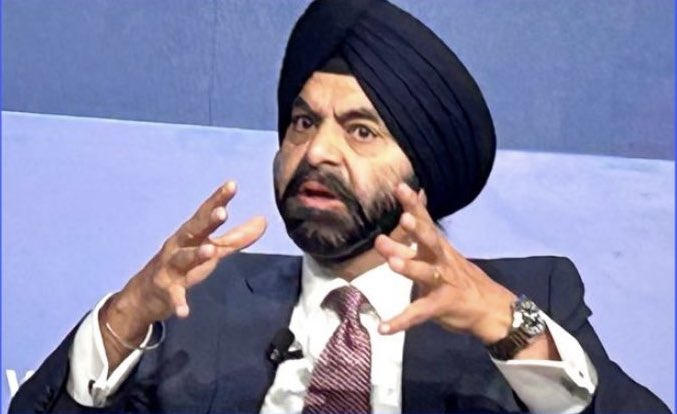A recent report highlights that the World Bank’s investments across Africa have surged to an impressive $38 billion, underscoring the organization’s commitment to supporting economic stability, infrastructure development, and poverty alleviation on the continent. This funding represents one of the largest regional investments in recent years, focused on promoting growth in key sectors like energy, agriculture, health, and digital transformation.
Expanding Economic Opportunities and Infrastructure
A significant portion of the $38 billion has been directed toward infrastructure development, particularly in energy and transportation, to address foundational challenges impeding Africa’s growth. Limited access to electricity, for instance, continues to restrict economic productivity, with approximately 600 million Africans living without reliable power sources. The World Bank’s funding aims to expand electricity access through renewable energy projects, including solar and wind power, which are both cost-effective and environmentally sustainable.

These investments are also tackling Africa’s infrastructure gaps in transportation. Major projects are underway to improve road and rail networks, enabling better connectivity between regions and facilitating trade across borders. Improved infrastructure is expected to boost intra-African trade, a crucial element of the African Continental Free Trade Agreement (AfCFTA), which promises to enhance economic cooperation among African nations and strengthen local industries.
**Strengthening Agriculture and Food Security**
Agriculture, a primary source of income for the majority of African populations, is another central focus of the World Bank’s investment strategy. The bank has allocated billions to improve agricultural practices, address food security, and mitigate the impact of climate change on farming communities. Investments in this sector include funding for advanced irrigation systems, training programs on sustainable farming practices, and support for agricultural technology innovations.
In East Africa, the World Bank has introduced programs designed to increase crop yields through climate-resilient farming, addressing both immediate needs and long-term challenges associated with climate change. Such investments aim to alleviate food insecurity and create more reliable income streams for smallholder farmers, who form the backbone of many African economies.
**Empowering Digital Transformation**
Recognizing the potential of digital technology to drive economic inclusion, the World Bank has prioritized investments in digital infrastructure, aiming to provide affordable internet access across Africa. High-speed internet and digital tools can bridge information gaps, enhance business competitiveness, and provide educational opportunities for young Africans. The bank has also funded initiatives focused on developing tech skills and digital literacy, equipping the youth with tools to participate in the global digital economy.
Digital finance, particularly through mobile platforms, is another key area of investment. Mobile banking has transformed access to financial services for millions of Africans, allowing for greater inclusion and economic participation. With continued investment, digital finance is expected to empower small and medium enterprises (SMEs), boost entrepreneurial opportunities, and foster an inclusive financial ecosystem across the continent.
**Health and Human Capital Development**
The World Bank has devoted substantial resources to improving health systems and human capital across Africa. Investments in healthcare infrastructure aim to address gaps in access and quality, particularly in rural areas where medical services are limited. Programs funded by the World Bank also emphasize maternal and child health, vaccination campaigns, and strengthening healthcare workforce capacities.
Human capital development is central to the World Bank’s approach, with initiatives supporting education systems, workforce training, and vocational programs. With nearly 60% of Africa’s population under the age of 25, creating pathways for youth employment is a strategic priority. Educational initiatives supported by the World Bank focus on developing critical skills that align with Africa’s economic needs, particularly in sectors like technology, healthcare, and sustainable energy.
**Addressing Climate Change and Environmental Challenges**
Africa is among the regions most vulnerable to climate change, facing risks like desertification, droughts, and floods that impact millions of lives. In response, the World Bank has earmarked significant funds for climate adaptation and mitigation efforts, aiming to help African countries develop resilient strategies to safeguard communities against environmental risks.
Projects include reforestation programs, water conservation initiatives, and efforts to preserve biodiversity. By supporting sustainable resource management, the World Bank aims to help African nations adapt to changing environmental conditions while promoting economic activities that minimize ecological impact.
**Looking Ahead: Impact and Challenges**
While the World Bank’s $38 billion investment in Africa represents a substantial commitment, there remain challenges in ensuring these funds achieve sustainable outcomes. Issues like governance, political instability, and corruption can undermine development projects. To address this, the World Bank has partnered with African governments and local institutions to foster transparency and accountability, ensuring that resources are used effectively and efficiently.
As these projects unfold, the World Bank is optimistic that its investments will catalyze further growth and attract private sector investment to the continent. By creating stronger economic foundations, the World Bank’s investments aim to position African countries as active participants in the global economy, ready to tackle future challenges and seize new opportunities.
The World Bank’s commitment to Africa reflects its recognition of the continent’s potential as a driver of future growth. By addressing critical infrastructure gaps, empowering digital transformation, and focusing on human capital development, the organization hopes to lay the groundwork for a more prosperous and resilient Africa.
Support InfoStride News' Credible Journalism: Only credible journalism can guarantee a fair, accountable and transparent society, including democracy and government. It involves a lot of efforts and money. We need your support. Click here to Donate
